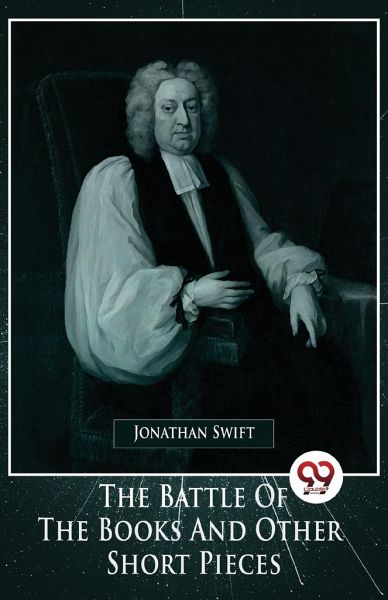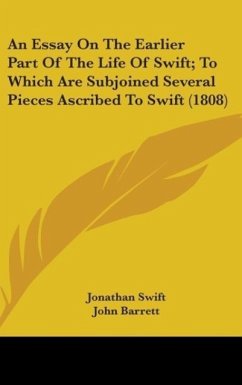
The Battle Of The Books And Other Short Pieces
Versandkostenfrei!
Versandfertig in 1-2 Wochen
13,99 €
inkl. MwSt.
Weitere Ausgaben:

PAYBACK Punkte
7 °P sammeln!
Jonathon Swift initially released The Battle of the Books, and Other Short Pieces as a compilation of satirical essays and pamphlets. The title article, "The War of the Books," is a satirical allegory in which numerous literary creations are portrayed as soldiers fighting in a conflict between ancient and contemporary books. Other pieces in the collection include "The Mechanical Operation of the Spirit," a satirical essay on the state of modern philosophical inquiry, "A Tale of a Tub," a satirical attack on religious hypocrisy, and "A Modest Proposal," a famous satirical essay suggesting that ...
Jonathon Swift initially released The Battle of the Books, and Other Short Pieces as a compilation of satirical essays and pamphlets. The title article, "The War of the Books," is a satirical allegory in which numerous literary creations are portrayed as soldiers fighting in a conflict between ancient and contemporary books. Other pieces in the collection include "The Mechanical Operation of the Spirit," a satirical essay on the state of modern philosophical inquiry, "A Tale of a Tub," a satirical attack on religious hypocrisy, and "A Modest Proposal," a famous satirical essay suggesting that Irish poverty could be solved by eating their children. Swift uses his trademark wit and cutting sarcasm to criticize various societal issues throughout the anthology, including politics, religion, literature, and culture. His work is characterized by a caustic and sarcastic tone that often criticizes the hypocrisy and arrogance of the governing elites. Despite being more than three centuries old, the Battle of the Books, and Other Short Pieces is still regarded as a classic work of satire and English literature. Its impact may be observed in the writing of following authors like Kurt Vonnegut, George Orwell, and Oscar Wilde.













